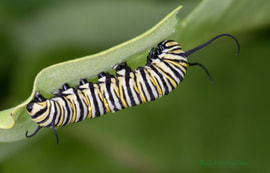Research
Our research is motivated by the key challenge facing ecologists and conservation biologists today: to accurately predict how global change will affect biodiversity. We study how and why species vary in the way they respond to global change. We conduct research at multiple scales to understand both the causes and consequences of this variation. We integrate field surveys and experiments, data synthesis, and modeling to understand the factors that structure species’ distributions, phenologies (the timing of life history events) and interactions.
The role of species interactions in the response of species to global changePredicting the implications of global change for a focal species depends on incorporating the direct effects of global change and the sensitivity of the interacting species to that change. For example, many physiological traits and ecological processes are influenced by temperature, and temperature can influence the underlying traits of interacting organisms differently. Our research focuses on disentangling the relative importance of the direct vs. indirect effects of global change on the ability of species to respond to those changes.
|
Climate change and the timing of species interactionsVariation among species in their recent phenological responses to climate change suggests that shifts in the relative timing of key life stages between interacting species (phenological synchrony) are likely to occur under climate warming. We are working to determine whether these shifts are actually occurring, what physiological mechanisms are driving differences among species and what the consequences of these shifts are for ecological communities.
|
Testing species distribution modelsA substantial effort has been made to predict where species will shift in response to changing environmental conditions based on current climate-distribution relationships. While this approach has roots in ecological theory (e.g. niche theory), many assumptions of these models have not been rigorously tested. Our research focuses on testing some of these key underlying assumptions to determine the practical utility of these models for basic and applied ecological research.
|




